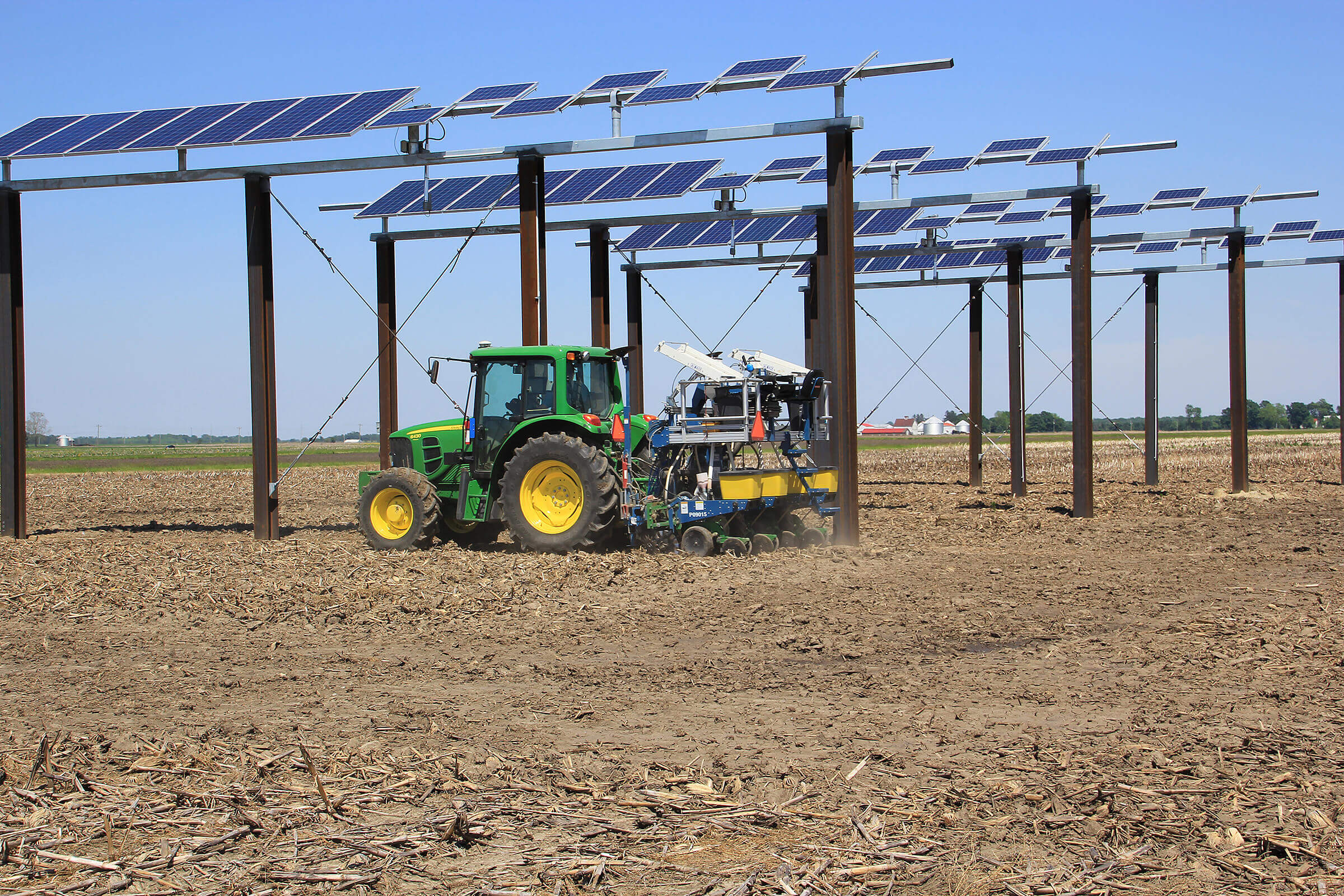Using farmland for solar electricity production
 Drivers passing by Purdue’s Agronomy Center for Research and Education for the next few summers will see something new rising out of the field: 56 solar panels being used in a project researching how to simultaneously use crop fields for solar electricity and food production.
Drivers passing by Purdue’s Agronomy Center for Research and Education for the next few summers will see something new rising out of the field: 56 solar panels being used in a project researching how to simultaneously use crop fields for solar electricity and food production.
Rakesh Agrawal, the Winthrop E. Stone Distinguished Professor of Chemical Engineering, is partnering with Mitch Tuinstra, the Wickersham Chair of Excellence in Agricultural Research and professor of plant breeding and genetics in the Department of Agronomy, on the Sustainable Food, Energy and Water Systems research project.
The multidisciplinary project also includes Purdue faculty in agronomy, agricultural and biological engineering, agricultural economics, entrepreneurship and innovation, and computer and electrical engineering, as well as faculty from Florida Agricultural and Mechanical University. It has received $5.5 million in funding from the National Science Foundation since 2017.
Nearly twice the height of a tractor, the solar photovoltaic panels are intended to generate electricity without inhibiting crop yield. Researchers will examine manipulating the solar photovoltaic panels’ shadows to identify an appropriate installation geometry and operating mode to optimize electricity production without compromising agricultural output. Because plants use only a portion of the solar light spectrum for growth, the team will also work to design special solar photovoltaics that allow the necessary light to pass through to the growing plants underneath.
The electricity the photovoltaic modules produce is expected to be used for local energy needs such as water management on the farm. In the long run, the trials could help eliminate competition for land between food and energy.
Purdue Agriculture, 615 Mitch Daniels Blvd, West Lafayette, IN 47907-2053 USA, (765) 494-8392
© 2026 The Trustees of Purdue University | An Equal Access/Equal Opportunity University | USDA non-discrimination statement | Integrity Statement | Copyright Complaints | Maintained by Agricultural Communications
Trouble with this page? Disability-related accessibility issue? Please contact us at ag-web-team@purdue.edu so we can help.
